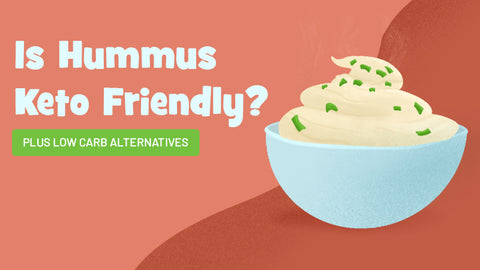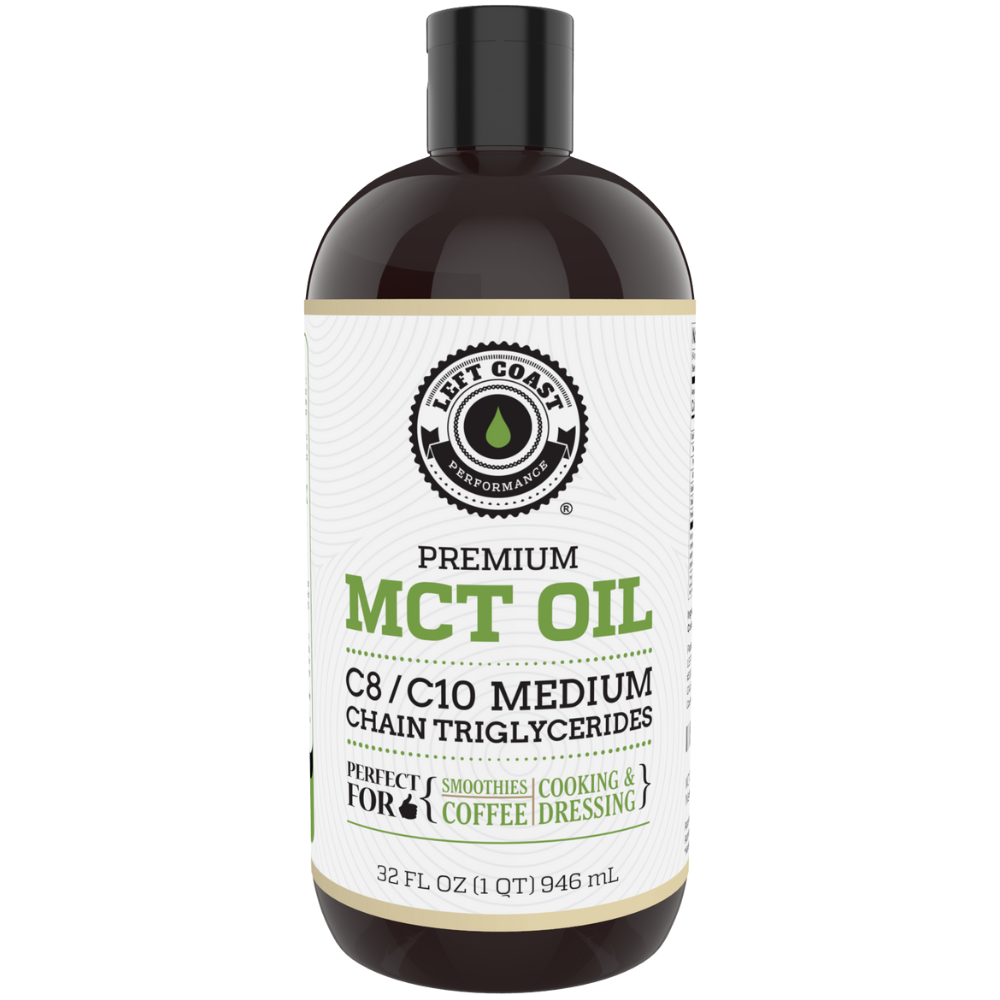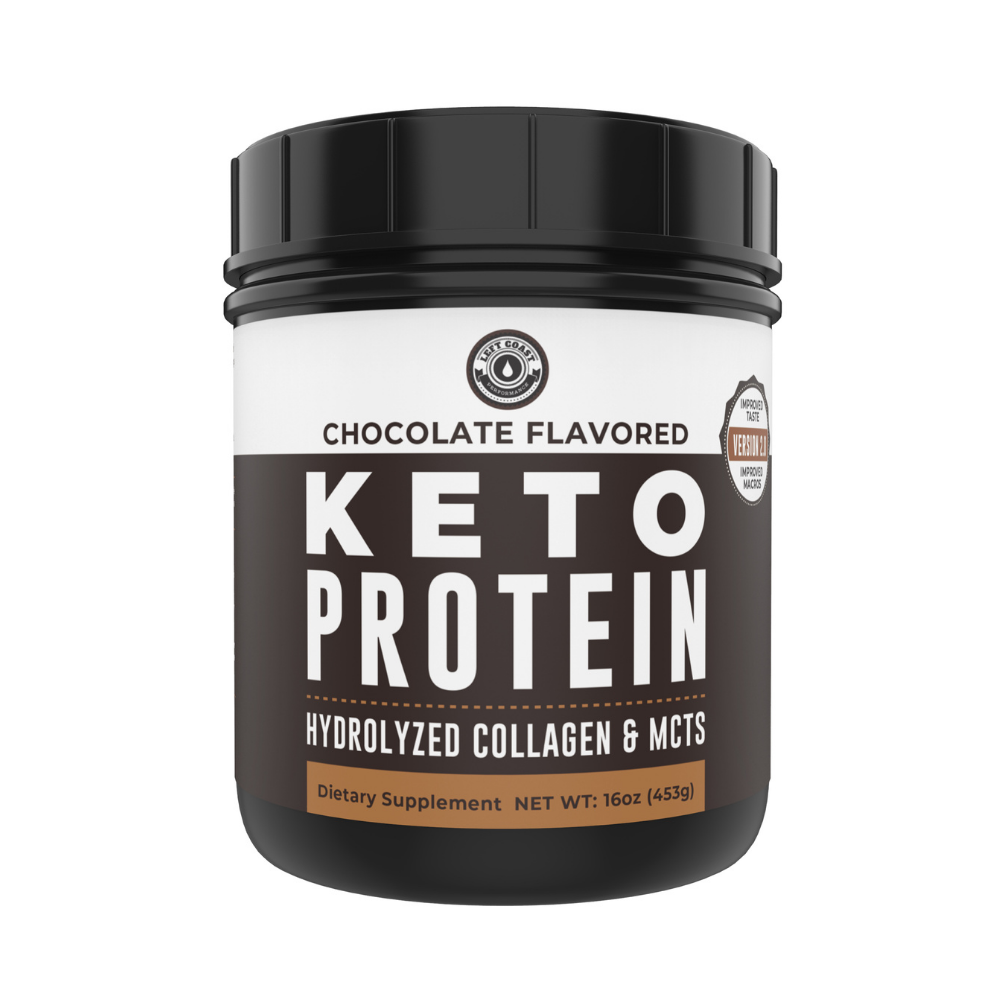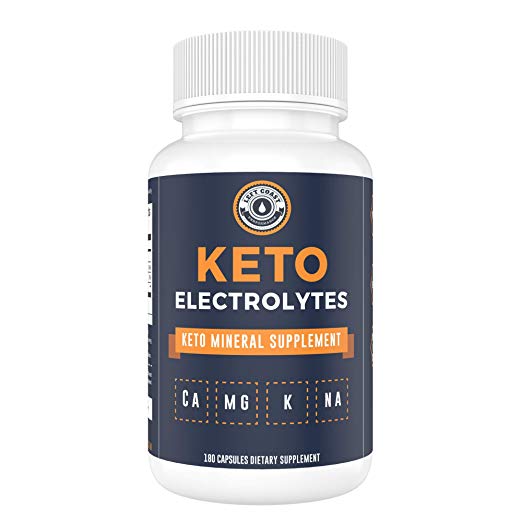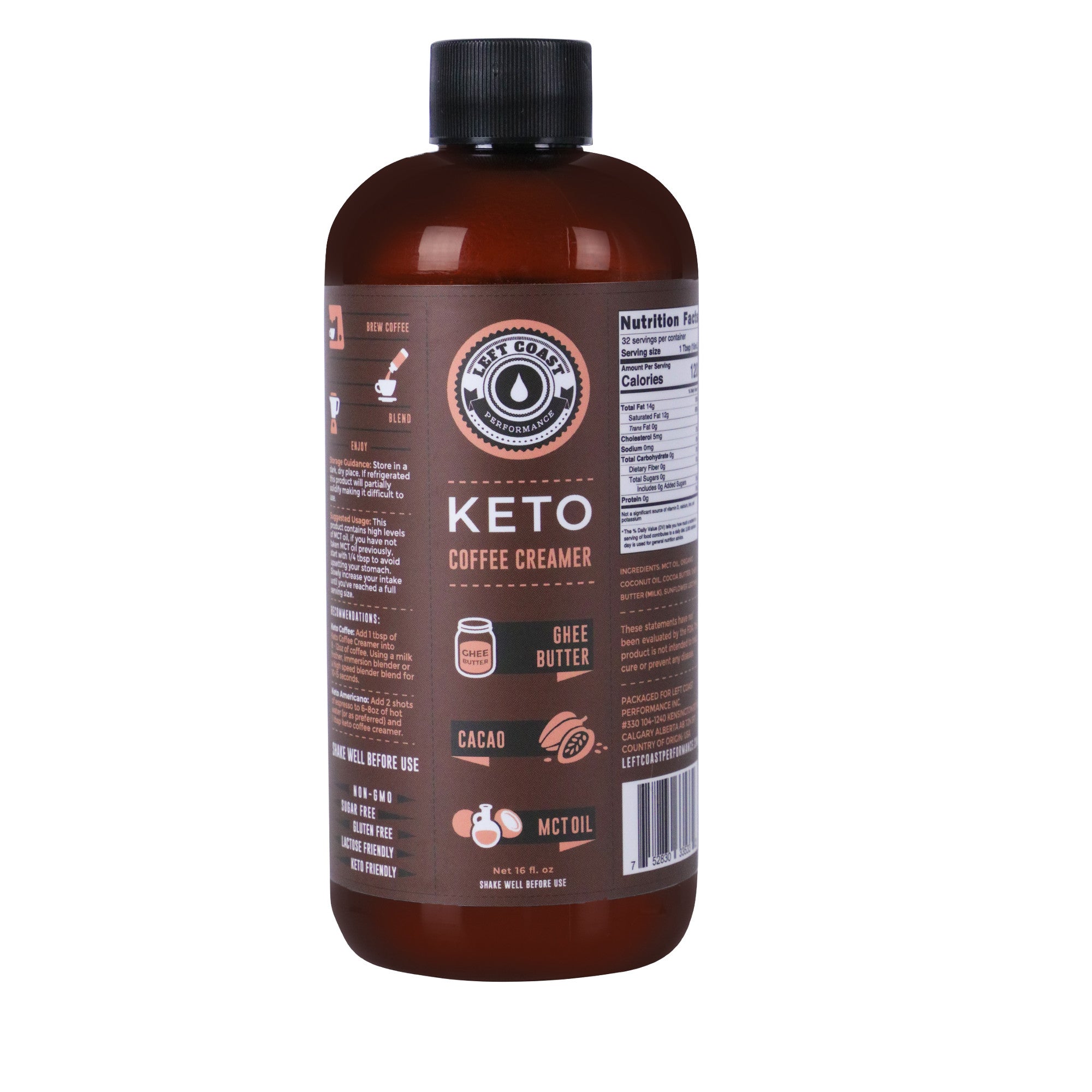Jicama & Keto
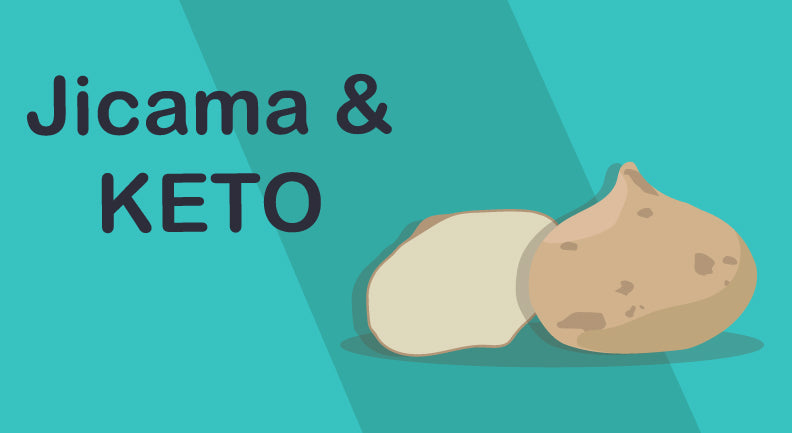
on September 05, 2019
Here’s a riddle for you: what looks like a potato, but isn’t a potato? Here’s a hint: it might just be your next favorite keto-friendly vegetable.
If you cut into a jicama, you’ll find a white, crispy flesh that also looks a lot like the inside of a potato. However, a jicama is quite different from a potato when it comes to its nutritional content and how you can use it.
In this post, we’ll tell you everything you need to know about this unique root vegetable and whether it’s okay to eat on the keto diet.
What is Jicama?
Also referred to as a yam bean or a Mexican turnip, the jicama is a tuber native to Mexico. Tubers are parts of a plant that grow beneath the soil’s surface along the root. Yams and potatoes are well-known tubers.
The jicama is actually the only edible part of the plant upon which it grows--the leaves, seeds, and pretty much every other part of it are toxic. Jicama has a crunchy texture and a mild taste, although not very similar in taste to its cousins, yams and potatoes. A jicama’s taste is more like a watered-down apple with the texture of watercress. Smaller jicamas tend to be more flavorful than larger ones.
Nutritional Info
Jicama is one of the most underrated foods when it comes to its nutritional value.
It’s a great source of dietary fiber, which helps regulate digestive function and stabilizes blood sugar. Fiber is a key nutrient for folks looking to lose weight because it slows digestion and helps fill you up without being absorbed by the body. One cup of raw jicama contains more than 6 grams of dietary fiber.
Jicama is a potent source of antioxidants, with that same one-cup serving packing around a third of the recommended daily intake of Vitamin C. It’s also a good provider of folate, iron, magnesium and potassium.
Though jicama has a sweet taste, it’s very low on sugar. There are only around 2 grams of sugar in a one cup serving of raw jicama.
Health Benefits
It’s impossible to talk about jicama without discussing its many health benefits. Some describe it as a superfood, right up there with kale and acai berries.
Have you heard of gut bacteria? Our digestive systems are filled with bacteria, both good and bad, that impact everything from our weight to our immune system and even our mood. Jicama contains substances that feed the “good” gut bacteria, which contribute to a lower risk of obesity, heart disease and diabetes.
Jicama has many cancer-fighting properties. In addition to its high Vitamin C content, it also contains the antioxidants Vitamin E, selenium and beta-carotene, which combat free radicals that can lead to cancer and cell damage.
Finally, jicama may have positive implications for people with diabetes. Studies in mice have shown that animals that were given jicama extract experienced increased insulin sensitivity and decreased blood sugar levels, both good things for diabetics.
Does Jicama Work for Keto?
Now that you know about this root veggie’s many benefits, you may be wondering: is jicama keto friendly? The answer, thankfully, is yes!
Though it’s starchy, jicama is still relatively low on carbs, with about 5 grams of net carbs in a one cup serving. One large jicama yields about five of those servings.
The beauty of jicama for keto followers is its versatility. Because of its mild taste, it pairs nicely with an array of flavors, from savory to tangy to sweet. It can be eaten raw or cooked.
Unlike other veggies, you can’t eat the skin of a jicama. It’s thick like bark, so you’ll need to remove it using a sharp paring knife rather than a vegetable peeler. Once you’ve exposed the crispy white flesh, there are so many things you can do with it.
You can slice it into sticks like carrots and enjoy it with hummus or your favorite vegetable dip. You can use it as a topping on salads, add it to soups or even fry it like a potato. You probably won’t use an entire jicama in one sitting; wrap what’s left and store it in the fridge for up to two weeks.
You can find jicama at most large grocery stores and at speciality Latin and Asian markets. It’s typically available year round. Whole jicama should be stored at room temperature and will keep for about a month.
Jicama Keto Recipes
Jicama is delicious raw with a dash of salt and pepper. You can also substitute it pretty much anywhere you’d use potatoes. But if you’re ready to take things one step further with your new favorite vegetable, try these delicious, keto-approved jicama recipes.
Jicama Chips
We’re forever searching for keto-friendly potato chip replacements, and this one’s a winner. These jicama chips are incredibly easy to make and can be customized in a ton of different flavors, just like potato chips.
We went with a spice cayenne version, but you could easily switch it up with garlic salt, ranch seasoning or the classic sea salt. ‘Slow and low’ is the key to achieving the right texture. Use a low temperature and take your time baking these chips to avoid burnt edges and achieve the perfect level of crispiness.
Ingredients
- One large jicama
- Juice of one lime
- Salt
- Pepper
- Cayenne powder
Instructions
- Preheat your oven to 275 degrees. Lightly grease a baking sheet or line it with parchment paper.
- Use a chef’s knife to cut a chunk off the bottom of a peeled jicama, creating a flat surface. This will give you a sturdy base to place on the cutting board when cutting your jicama chips.
- Use a sharp knife or a mandoline to make paper-thin jicama slices (too thick and they’ll end up chewy rather than crispy).
- Transfer the chips to a large bowl. Add the lime juice, cayenne pepper, salt and pepper to taste. Toss to coat.
- Transfer to the baking sheet and bake for 30 minutes. Remove from the oven and flip the chips, then bake for another 30 minutes until brown and crispy.
Jicama Rice Stir Fry
Cauliflower rice is all the rage and a keto staple in its own right. But next time you’re feeling adventurous in the kitchen, why not change it up by swapping cauliflower for jicama?
Riced Jicama cooks up nicely and adds a subtle hint of sweetness to stir fry. We used red bell pepper, onion and carrot for our vegetables, but you can mix it up with whatever you have on hand. This recipe would work well topped with a fried egg, chicken, beef or even pork.
Ingredients
- 2 tbsp extra virgin olive oil
- ½ medium sized jicama
- 1 small onion, diced
- 1 red bell pepper, diced
- 1 large carrot, shredded
- 1 tbsp coconut aminos
- Salt and pepper to taste
Instructions
- Peel and roughly chop the jicama. Use a blender or food processor to dice the chopped jicama into rice-like pieces.
- Heat extra virgin olive oil in a large skillet over medium-high heat. Add the carrots and saute until they begin to soften, about 4-5 minutes.
- Add the jicama and onion. Cook until the onion becomes translucent and some of the water cooks out of the jicama, about 3-4 minutes.
- Add the bell pepper, coconut aminos, salt and pepper. Cook for 2-3 more minutes, tossing all vegetables in the seasonings. Serve.
Chorizo and Jicama Skillet
Whoever said meat and potatoes were the perfect pair obviously hadn’t tried jicama! This savory chorizo and jicama skillet inspired by Everyday Maven will make you wonder why you haven’t been cooking with jicama all along.
Not only is this recipe low carb, it’s also a one-pot dish and has just three ingredients, perfect for those busy weeknights where doing a sinkful of dishes isn’t happening. If you’re making this recipe as-is, you’ll want to stick to pork chorizo or pork sausage for the high fat content. If you prefer to swap in chicken or turkey sausage, you’ll need to add a fat like avocado as well as some seasoning for flavor.
Ingredients
- 3/4 pound smoked pork chorizo sausage
- ½ large jicama, cubed
- 2 cups or 1 small package sugar snap peas, halved
- 1/3 cup water
Instructions
- Slice the sausage in half lengthwise, then crosswise into ¼ inch slices.
- Peel the jicama and cut into ½ inch cubes.
- Clean the snap peas and remove the stems. Cut in half lengthwise.
- Heat a large skillet over medium-high heat. Add the sausage and cook for 8-10 minutes, tossing to brown on all sides. The fat should render in the pan.
- Use a slotted spoon to remove the sausage and set aside, reserving the oil in the pan.
- Add the jicama to the skillet and toss until coated in oil. Cook for 7-8 minutes, stirring occasionally.
- Add the water to the pan and cook for another 7-8 minutes or until the jicama is tender.
- Add the sausage back to the skillet along with the snap peas. Toss together and cook for 4-5 minutes or until the snap peas are slightly tender. Serve and enjoy.
About Left Coast Performance
For keto friendly diet swaps and premium keto products, turn to Left Coast Performance. We stock only the highest quality products to fuel your ketogenic lifestyle, like clean proteins and dietary supplements. We’re committed to delivering products that are 100% free of fillers, coloring and artificial flavors, and all orders come with a no-risk money back guarantee.
Browse our blog, which is updated regularly with keto recipes, lifestyle hacks and nutrition information. Follow us on Instagram for more everyday keto ideas and tips!


